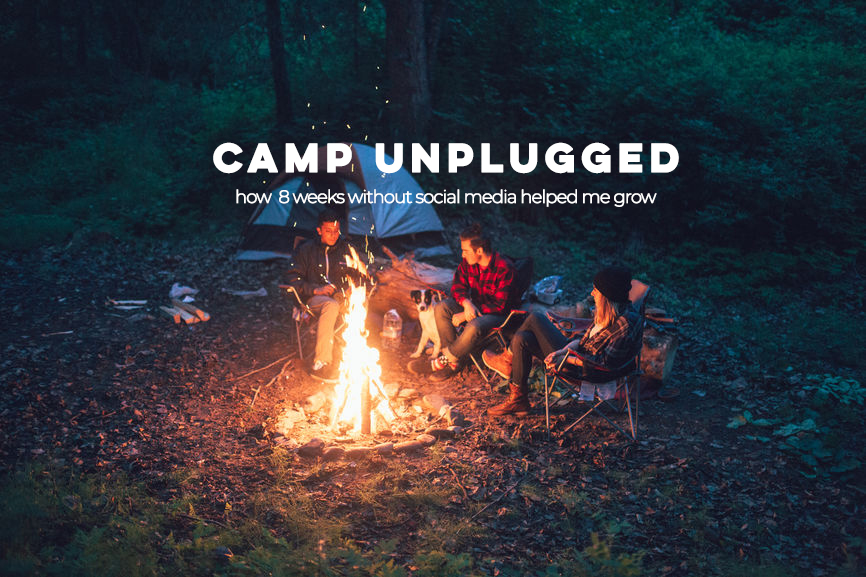


When 18 year old Tatum Oakley packed her bags for summer camp, she knew that she would be expected to check in her phone. But what she didn’t expect was how much she would learn and grow in her summer of unplugging. At START, we often hear from families who are overwhelmed by helping our teens find balance in their social media lives, so our ears perked up when Tatum shared a powerful secret: one of the best ways to help your teens find digital balance is to offer them rich offline experiences.
As a graduating senior in 2019, a smartphone has been a necessary part of my life–helping me check in with friends, keep track of activities, and stay organized in the midst of the demands of my academics, sports, music, and church commitments. But for the past two summers, I got to attend a leadership camp, which had a life changing impact on me, and was a time when I actually got to break away from all of social media.
In the week leading up to camp, I knew unplugging was on the horizon, and I prepared myself for the ways I might let down my friends by breaking our Snapchat “streaks.” Truth be told, I don’t always love my streaks–they can feel like a chore I have to take care of everyday, but it still felt stressful knowing that I would be cutting myself off from friends for the summer.
But when I got to camp and turned in my phone, I was surprised by how quickly I adjusted. I felt free..and did not miss the pressures of my social media feed.
Instead, I found myself surrounded by people who were becoming my best friends. I found myself being present with them, enjoying the moment with them, and figuring out together how to pass time. Some of the best memories I have are when we all piled into a van for 8-9 hour road trips, and we didn’t have phones. Those were some of the times when we would have the deepest conversations–opening up to each other, learning about each other, sometimes just playing random games together. Or picking up a guitar, and singing for fun. So many memories.
There were about five times that we were given our phones so we could call home and check in with our parents, and it was good to talk to people at home. But one thing I noticed was how just having the phone in my hand automatically made me feel stress about “What have I missed on social media?” It was so unnecessary because I was already with the people who I had become closest with. It was those nights when I really realized how nice it was to have a break from it all, and beginning to really think for myself about the role I want my phone to play in my life.
Because we didn’t have phones, we learned to check in on each other, and debrief about how we were doing mentally and spiritually. In the real world, we don’t normally get those chances because the automatic thing that you do when you have a down moment is to check your social media notifications or send a text. I really appreciate how we learned ways to be intentional with each other and go deep in our relationships. Now that I’m home, I try to check in with people I care about by spending time with them–outside of social media.
If I were going to share one thing with parents about supporting their kids when it comes to smartphones, I would tell them that if you are only trying to limit your teen’s screen time without offering any alternatives, it can be hard for the teen to adjust. Instead, give them opportunities to see the benefits of going offline. Help them have experiences that are rich and deep. Walk beside them, helping them think about the purpose and power of their phone. Keep asking them “why” they are doing what they are doing. They might not act like they care in the moment, but if they can have a chance to see that there is something better out there, they just might make a choice to limit their own phone use, and not miss opportunities to get out there, and go deep in life.